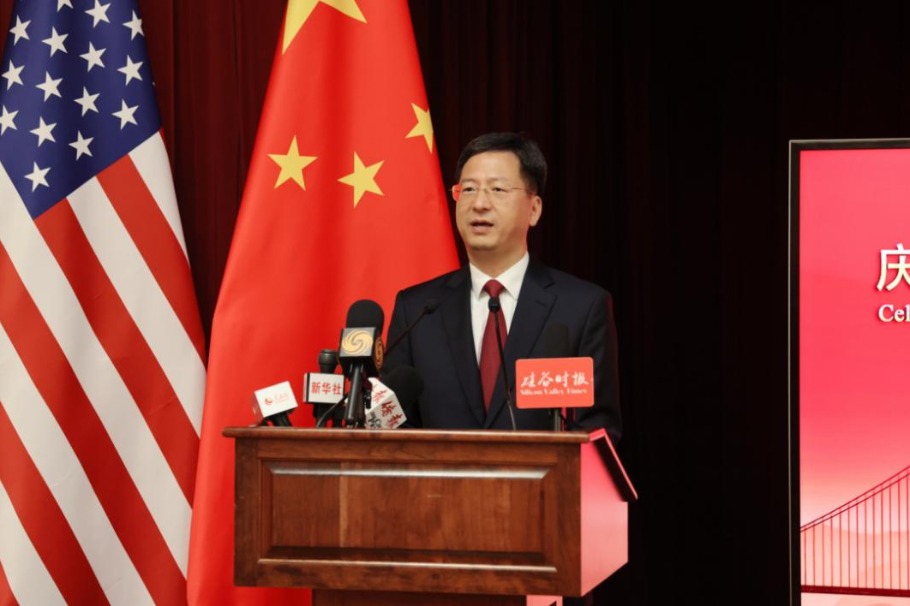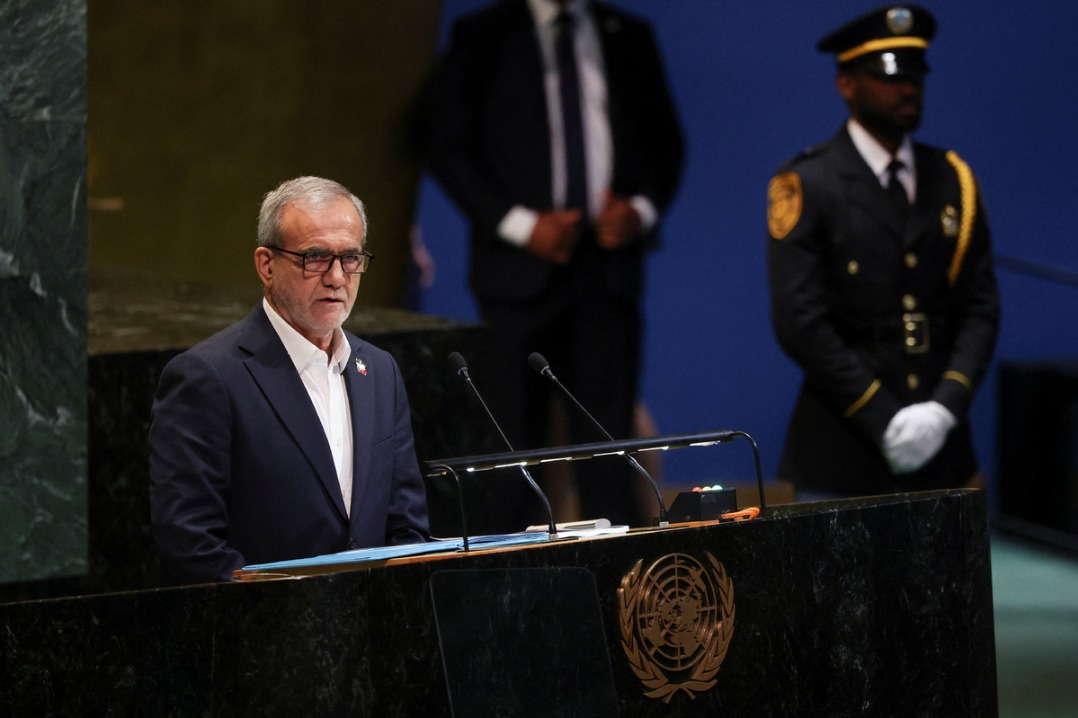Washington eases port fees on Chinese ships
Beijing says high rates disrupt supply chains, raise maritime shipping costs

Following widespread opposition, the United States has scaled back plans to subject Chinese ships at US ports to millions of dollars in fees that would have been based on their net tonnage.
The change in plans was announced by the Office of the United States Trade Representative, or USTR, on Thursday. The office said the fees would become operational in 180 days time and would rise in the coming years.
According to the new plans, revealed in a USTR statement, Chinese-built and owned ships will be charged $50 per net ton starting from October, a rate that will increase by $30 a year over the next three years.
That will apply if the fee is higher than an alternative calculation method that charges $120 for each container discharged, rising to $250 after three years.
China-built ships owned by non-Chinese firms will be charged $18 a net ton, with an annual fee increase of $5 over the same period.
Meanwhile, there will be a phased fee on vessel operators of foreign vehicle carriers. The fee will be set at $150 per car equivalent unit, or CEU, capacity of the entering non-US built vessel.
At a regular news conference on Friday, Chinese Foreign Ministry spokesman Lin Jian said measures such as charging port fees and imposing tariffs on cargo handling equipment will hurt the United States itself as well as others.
"These measures will not only increase the global maritime shipping cost, disrupt the stability of the global supply chain, but also increase the inflationary risks in the US and hurt the interests of US consumers and companies," Lin said.
"In the end, they will fail to revitalize the US shipbuilding sector," he added. "China will take necessary measures to protect its lawful rights and interests."
The newly announced plan was watered down from a February proposal for fees on China-built ships of up to $1.5 million per port call, after the shipping industry, trade associations and ports warned the fee would ultimately harm the US shipping industry.
Some Chinese-built vessels will not be subject to the fee. These include certain vessels enrolled in certain US Maritime Administration programs.
Other vessels slated for exemption include: vessels arriving empty or in ballast; vessels below certain size or capacity thresholds; vessels engaged in short sea shipping of voyages of less than 2,000 nautical miles from certain US ports, and certain vessels owned by US companies, along with certain specialized export vessels.
The USTR said it made its decision in order to "balance the need for action and the importance of limiting disruption for US exporters".
In a second phase, which will not begin until 2028, the USTR will "incentivize US-built liquified natural gas (LNG) vessels with limited restrictions on transporting LNG via foreign vessels. These restrictions will increase incrementally over 22 years."
The decision on fees comes one year after the initial probe into China's shipbuilding was categorized under Section 301 of the 1974 Trade Act, which allows for an investigation into foreign trade practices deemed unfair.
In March, a two-day Section 301 hearing on China "Targeting the Maritime, Logistics, and Shipbuilding Sectors for Dominance" took place at the US International Trade Commission in Washington, DC.
Widely opposed
The hearing received more than 600 letters. Many of those were against the proposals.
Some of the organizations in attendance included the Chamber of Marine Commerce, the National Retail Federation, the American Apparel and Footwear Association, the China Association of the National Shipbuilding Industry and the American Soybean Association.
Small and medium ports warned that ships would reroute away from their stops and travel instead to larger ports, overwhelming those facilities. This could waste billions of dollars of public investment in infrastructure improvements, port executives said.
The hearing on shipbuilding originally came about after the United Steelworkers and four other unions, in March 2024, urged the Biden administration to launch an investigation into China's "dominance" in shipbuilding.
Last week, US Trade Representative Jamieson Greer confirmed that the agency did not plan to implement the full fees as first proposed. At a Senate Finance Committee hearing, he stated that the Trump administration wanted to avoid economic harm.
Wang Qingyun in Beijing and agencies contributed to this story.
































